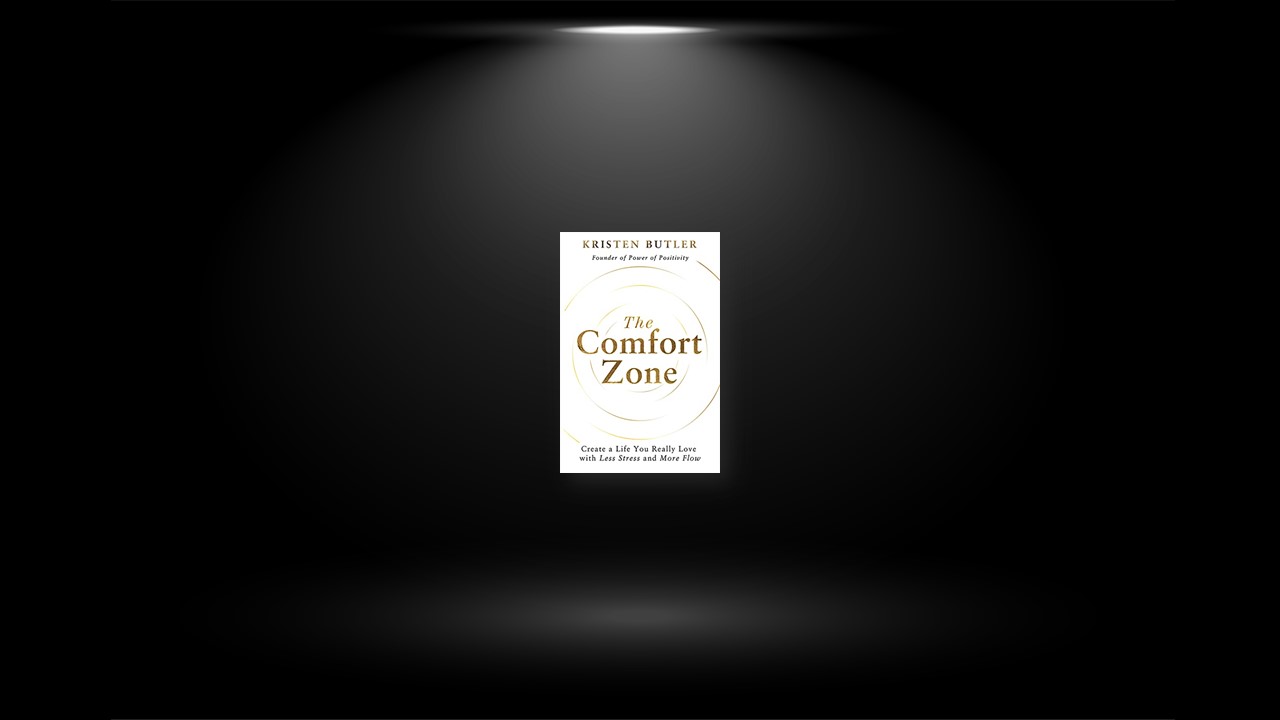ONE OF THE MAJOR REASONS WE FIGHT against staying in our Comfort Zone is because we’ve come to believe the false stories society tells us about being comfortable and what that means for achieving our dreams.
When things are not going well, you might think that being in your Comfort Zone will hinder everything working out, and that change only happens when you step out into the unknown. When things are going well, you might feel that relaxing into your Comfort Zone will take all your progress away.
Before you can identify the beliefs standing in your way, you must first understand what beliefs actually are. Your brain is constantly turning thoughts into beliefs. This is because you can only hold so many conscious thoughts in your mind at once. So, your brain will automate any thought that it can in order to open up space.
This is a very helpful ability because it allows you to retain information from past experiences without needing to constantly recall that information, or needing to remember the circumstances that birthed that thought in the first place.
Unfortunately, this ability to turn thoughts into facts of life can severely stifle your experiences if the thoughts you turn into beliefs are limited or limiting in nature. For instance, if you have a belief that says Public speaking gives me panic attacks, then you will experience public speaking opportunities differently than someone else who believes Public speaking is exciting.
As You Believe, So Shall You Receive
According to psychology professor and Skeptic magazine founder Michael Shermer, we form our beliefs first and then start collecting evidence in their favor. After you form a belief, your brain starts to build stories, rationalizations, and explanations around that belief.
Kristen’s friend, for instance, finds ways to be lucky no matter where he goes. Another friend believes that if her nails are not perfect, she’s going to lose the guy she’s dating. And somehow, she always ends up dating those few men in existence who seem to have a problem with chipped or unmanicured nails.
This means that what you believe determines your reality, not the other way around. This is why Henry Ford said, “Whether you think you can or you think you can’t, either way you’re right.”
Don’t Ask for Failure If You Want Success
Changing beliefs is so hard. Once something becomes a fact of life, it becomes increasingly difficult to disprove it. At some point, we collect so much evidence in support of it that it seems impossible for it not to be true. If your belief was formed in childhood, you might have decades of proof that your belief is correct.
If you’re living a reality you don’t like, chances are you’re living out beliefs that are not serving you—beliefs that limit your creativity, your inspiration, and your ability to thrive. But there is hope! It is possible to change your beliefs! Because beliefs start out as thoughts, changing a limiting belief can happen only when you decide to stop buying into the original thought. That’s when you can choose a different thought instead. One that serves and empowers you!
The Three Zones of Living
WE ALL LIVE OUR LIVES from within the Three Zones of Living: the Complacent Zone, the Survival Zone, and the Comfort Zone. Typically we bounce in and out of each of these zones throughout our life. The zone where you spend most of your time determines the quality of your choices and therefore the quality of your life. Understanding the Three Zones of Living, knowing where you are at any given moment, and continually moving into the zone that fosters inner peace and connection is the most effective way to live a happier life and create experiences that are enjoyable and fulfilling.
#1 THE COMPLACENT ZONE
Most people, when they talk about the Comfort Zone, are really thinking about the Complacent Zone. For this reason, understanding this zone requires us to dig a little deeper and look under its surface.
Even though they might call themselves content, those who live in this zone are far from feeling truly comfortable. It’s common for those who primarily live in the Complacent Zone to claim that they feel satisfied even though they feel stuck where they are and are unable to take action due to some level of fear—even if they are unaware it is lurking there.
Sometimes, this lack of motivation manifests itself as a general sense of apathy. Those who occupy this zone may go through life without really caring too much about anything. They may be “satisfied” with what is because they lack the energy, clarity, and direction to strive for more. They may have experienced so much failure that a heavy doubt keeps them from asking for more because, they think, What’s the point? Why try again? It may even be hard for someone in the Complacent Zone to connect with people, projects, or activities on a deeper level. Their own vulnerability feels too raw and exposed. On the other hand, they may overshare or explain too much as a way to mask their lack of interest.
#2 THE SURVIVAL ZONE
If you’re an overachiever and live in the habit of pushing yourself outside your Comfort Zone, chances are you spend most of your time in the Survival Zone. High effort is the driving force of this zone. This is also the zone of endless comparison and competition, and as such, it can foster envy, judgment of others, and resentment. In this zone, you’re always looking outward, comparing yourself to people who have what you want and getting caught up in the need to prove yourself to the world.
In this zone, everything seems to fluctuate from one day to the next. Your beliefs about what’s possible, the clarity of your vision, your fears and your doubts—they’re high one moment and low the next, resulting in many wins, fleeting successes, unreliable results, and unexpected setbacks. You measure your progress often in this zone, as if keeping score, and you struggle to build and maintain authentic relationships.
When you are operating from the Survival Zone, things do work out, but they require a lot of effort with an unpredictable return. Satisfying feelings are fleeting. Some days are exceptional and feel like a success while other days are a drag.
#3 THE COMFORT ZONE
Are you someone who loves creating in the flow? Do you prioritize self-care? Does being authentic feel important to you? Are you passionate? Do you seek purpose? Do you strive for growth? Are you intentional? Do you trust that everything is working out for you and that life is ultimately rigged in your favor? If you say yes to any of these questions, you may be living in your Comfort Zone right now, or you may be working toward living in this way. Cheers! Way to go!
Think of your Comfort Zone as the home where you can feel safe, free to express yourself fully without fear of judgment. This zone encompasses everything that allows you to feel uplifted and good about yourself and your life. It is filled with things that feel comfortable and natural. It’s a very personalized space where you can stay and remain strong, in your power during stressful times of outside threats.
When you are inside your Comfort Zone, your amygdala (the stress center of your brain) is, for the most part, inactive. Unless you’re facing an immediate danger, like a fire breaking out in the kitchen, you feel at peace and safe. This allows you to be in the “rest and digest” mode, where your body can heal and recuperate. It also allows your brain waves to slow down to become alpha waves, where you can become a more creative problem solver.
The Comfort Zone is not a static place. In fact, if we allow it, our Comfort Zone will continually grow and expand. It is always becoming more. This is because we are learning creatures who love to experience variety. Our nature is to continually stretch the limits of our abilities and experiences.
Your Comfort Zone Is Your Power Zone
When you live in your Comfort Zone, you wake up in the morning with purpose. You have access to clarity. You’re able to feel inspired, and you give yourself permission to act out of this inspiration. Because the Comfort Zone is all about feeling safe, when you are in this space, you naturally prioritize events, relationships, and tasks that are fun and fulfilling.
You ask yourself questions like How can I serve the world today? What’s one thing I can do today that’s fun? and How can I solve this challenge in a way that feels good?
When you operate from your Comfort Zone, you listen to your own inner guidance rather than to the suggestions of others. You trust yourself. You stop comparing yourself to others, because you realize that every person is on their own journey. You create healthy boundaries and they are honored. As a result, you start living life your way rather than following someone else’s road map for you.
The general theme of those who live and create from within their Comfort Zone is: Life is intelligently designed, and everything is always working out for my highest good. All I need to do to be successful is to be myself and follow my own internal guidance. If I can dream it and claim it, I can receive it.


